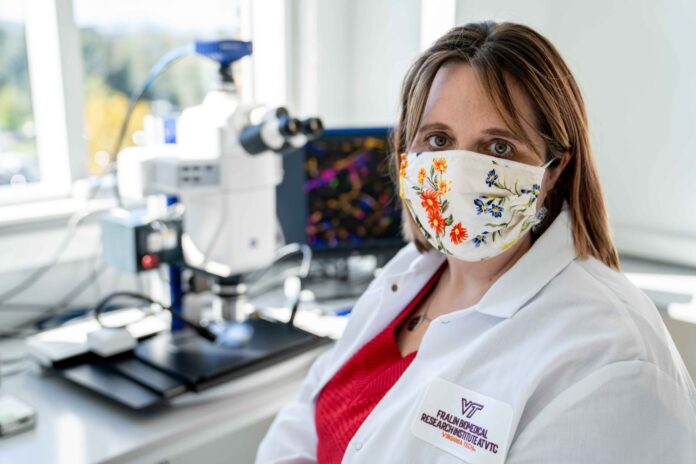A year ago, Virginia Tech united its biomedical and technical expertise into a Cancer Research Alliance to take on the second leading cause of death in the United States.
Now, scientists and engineers will talk about some leading-edge projects in breast cancer, brain cancer, and noninvasive cancer treatments in a public Zoom discussion, “Virginia Tech Cancer Research Alliance: Uniting Technology, Resources, and People to End Cancer,” at 7 p.m. on Tuesday, Nov. 10.
“We want to give people a look at some of the amazing people and technology at work taking on one of the state and the world’s most pressing challenges,” said Michael J. Friedlander, vice president for health sciences and technology at Virginia Tech and executive director of the Fralin Biomedical Research Institute at VTC. “People might be surprised to know what a force we have become in the fight against cancer. More than 30 research teams are trying to solve problems associated with this terrible disease.”
Friedlander will host the panel, which includes:
- Carla Finkielstein, an associate professor at the Fralin Biomedical Research Institute and in the College of Science’s Department of Biological Sciences and director of the Virginia Tech Molecular Diagnostics Laboratory at the Fralin Biomedical Research Institute. Finkielstein studies breast cancer and tumor growth.
- Jennifer Munson, an associate professor at the Fralin Biomedical Research Institute at VTC and in the Department of Biomedical Engineering and Mechanics at the College of Engineering. Munson studies fluid flow in tumors, which affects how the cancer responds to drugs. She is particularly interested in glioblastoma, the deadliest form of brain cancer.
- Eli Vlaisavljevich, an assistant professor of biomedical engineering and mechanics at the College of Engineering, who studies therapeutic-focused ultrasound and noninvasive therapies for cancer treatment and clinical application.
As vice president for health sciences and technology, Friedlander organized the landscape of cancer research faculty members across colleges, centers, and institutes to create a cancer research alliance to solve the health issues and social problems caused by the disease.
“Virginia Tech has dozens of dedicated, smart people working in research labs developing innovations for new approaches to prevention, diagnosis and treatment to help patients and families in their struggles with cancer,” said Friedlander, who added the university is building a strategic focus on cancer in children and building a productive relationship with Children’s National Hospital in Washington, D.C., one of the nation’s premier children’s hospitals.
“By organizing as the Cancer Research Alliance, we are connecting faculty members across the university, creating opportunities and identifying resources,” Friedlander said. “I think Hokies and non-Hokies alike will be excited by what Virginia Tech is doing when they watch the Zoom event.”
Viewers may watch virtually via Zoom by registering in advance to access the log-in details, which will enable audience members to ask questions via Zoom chat. In addition, there will be a livestream on the research institute’s Live Webcast page.

